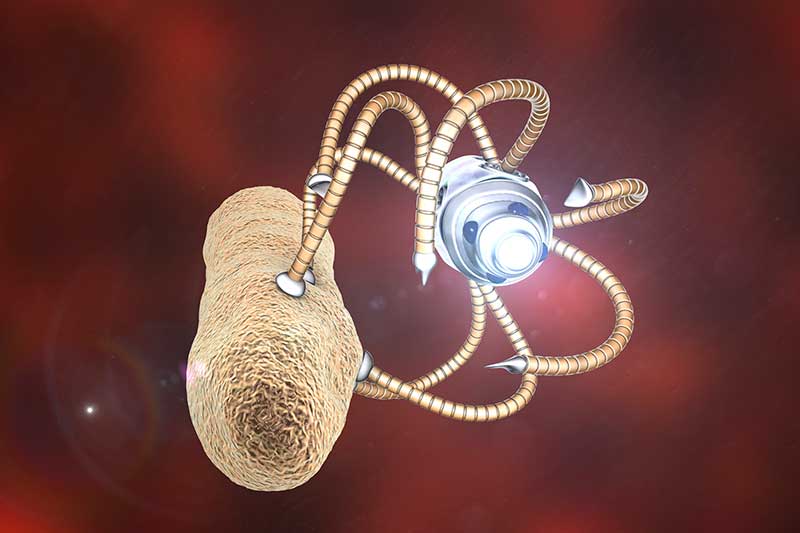
Micro-robots cleaning teeth sounds like an idea straight out of a Sci-Fi novel or movie. However, it’s actually a recent breakthrough, reported at the University of Pennsylvania.
Anyone who has had teeth cleaned is familiar with the arduous procedure. A dental hygienist scrapes your teeth to remove plaque. The teeth cleaning process not only takes time, but also is not necessarily pleasant.
Micro-robots Cleaning Teeth Breakthrough
According to an article in Science Daily, a team of engineers, biologists and dentists devised a microscopic robotic cleaning crew. The micro-robots can clean biofilm off the surface of teeth.
What Is Biofilm and Why Is It Harmful?
Biofilm is a slimy matrix substance that contains bacteria or fungi. Furthermore, it acts as a protective covering for these microorganisms. Many scientists recognize that mankind is in the post-antibiotic era. This is due to the fact that biofilm has become resistant to antibiotics and to immune system cells.
An example of biofilm is the layer of tartar that forms on the surface of teeth. It protects the bacteria that cause tooth decay and gum disease.
How Does Micro-robots Teeth Cleaning Work?
The article compares teeth cleaning to a dentist deploying an army of tiny robots. They efficiently remove plaque buildup in a non-invasive manner.
Both of their approaches use nanoparticles containing iron oxide. Engineers can direct and control the movement of these robots through a magnetic field.
The nanoparticles work as a catalyst to activate hydrogen peroxide. Hydrogen peroxide releases free radicals that target and destroy biofilm, Plus, it kills bacteria.
The team has tested two types of robotic systems. They call the systems catalytic antimicrobial robots (CARS). CARS are capable of breaking down and removing biofilm. One system uses a solution and the other uses gel molds.
The good news is that both systems do three things:
- Break down biofilm
- Kill bacteria
- Remove the debris in a highly precise manner
Also, the systems can enter hard-to-reach root canals where biofilm typically grows. The efficient removal of debris reduces the chances of the remaining debris taking hold and re-growing.
The new discovery has wide application potential. It goes beyond dental cleaning because biofilm grows in joints and on objects, including water pipes, catheters and body implants.
Do You Have Concerns about Dental Care?
Our dentists and staff at Hutto Hippo Family Dental are glad to answer your questions and assist you with dental care.






Recent Comments